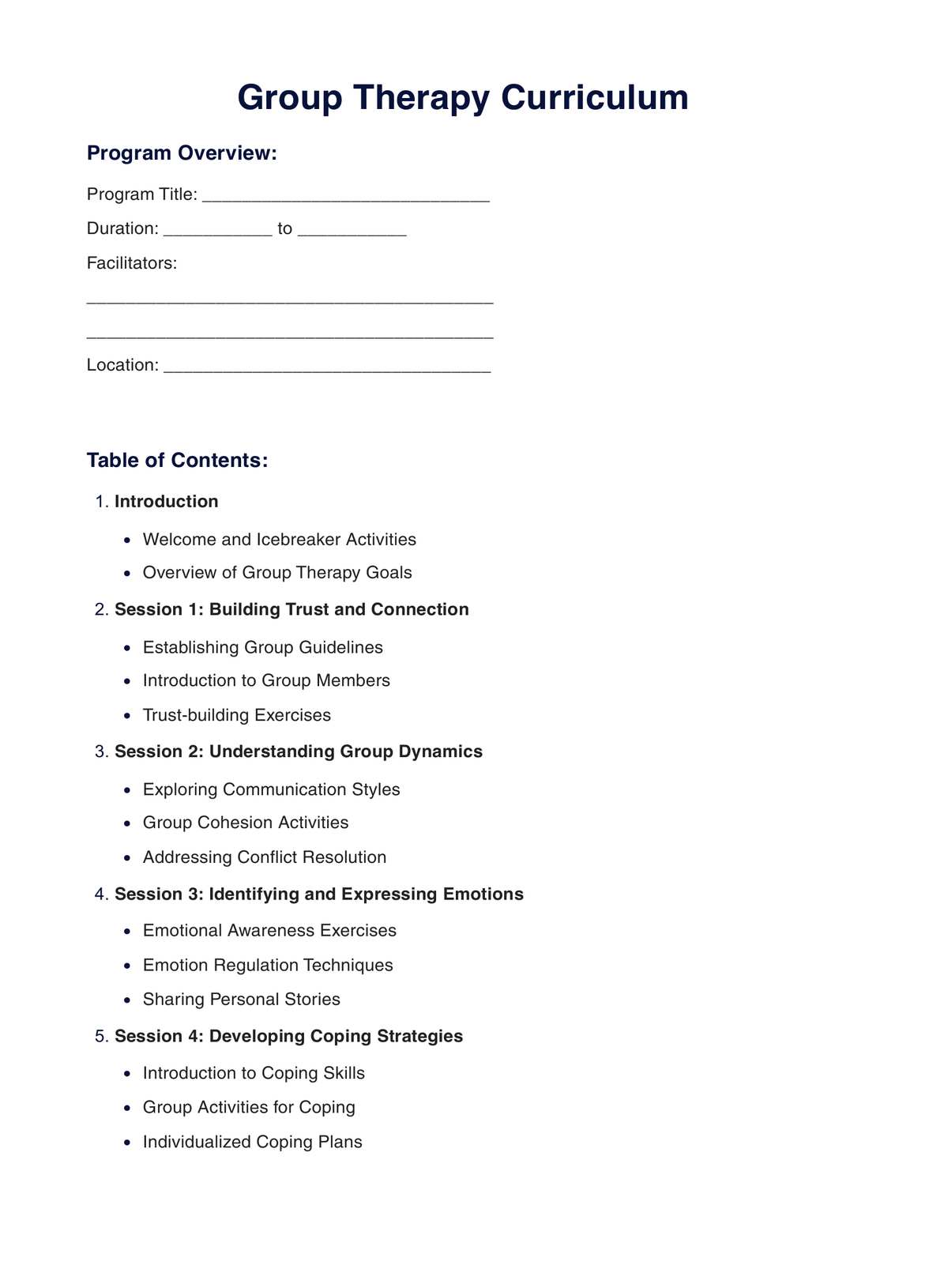The primary goal of group therapy is to provide a supportive and collaborative environment where individuals can share their experiences, receive feedback, and gain insights into their challenges. Through this collective process, participants work towards personal growth, enhanced coping skills, and improved emotional well-being.

Group Therapy Curriculum PDF
Are you looking for a group therapy curriculum PDF? Download Carepatron's free PDF here as a guide for structuring and planning group therapy sessions.
Group Therapy Curriculum PDF Template
Commonly asked questions
Cognitive-behavioral therapy (CBT) is the most common form of group therapy. It identifies and changes negative thought patterns and behaviors, promoting healthier cognitive processes and coping mechanisms within the group dynamic.
Group therapy has proven to be highly effective, with research indicating positive outcomes for various mental health concerns. The shared experiences, support, and diverse perspectives within a group setting contribute to improved emotional regulation, interpersonal skills, and long-term positive changes for participants.
EHR and practice management software
Get started for free
*No credit card required
Free
$0/usd
Unlimited clients
Telehealth
1GB of storage
Client portal text
Automated billing and online payments











